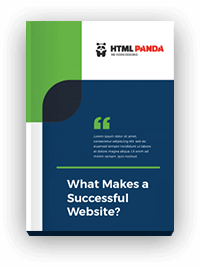In the rapidly advancing healthcare sector, pharmaceutical companies are increasingly turning to digital marketing to enhance their visibility, engage healthcare professionals (HCPs), and educate patients. The integration of digital strategies is no longer optional but a necessity for staying competitive and compliant in a highly regulated industry.
The Shift Toward Digital in Pharma Marketing
Historically, pharmaceutical marketing relied heavily on traditional methods such as face-to-face detailing and print advertisements. However, with the rise of digital technologies, there has been a significant shift toward online platforms. This transformation allows for more targeted, efficient, and measurable marketing efforts.
Digital marketing enables pharmaceutical companies to reach a broader audience, including HCPs and patients, through various channels like websites, social media, email campaigns, and search engine optimization (SEO). These platforms offer opportunities for personalized communication, data-driven decision-making, and real-time engagement.
Key Digital Marketing Strategies for Pharma
-
Search Engine Optimization (SEO) and Content Marketing
SEO is crucial for ensuring that a pharmaceutical company’s website ranks high on search engine results pages, making it more accessible to users searching for relevant information. By optimizing website content with targeted keywords, creating informative blog posts, and ensuring mobile-friendly design, companies can improve their online visibility and authority.
Content marketing complements SEO by providing valuable information that addresses the needs and concerns of both HCPs and patients. Educational articles, videos, and infographics can help demystify complex medical topics, build trust, and establish the company as a thought leader in the industry.
-
Social Media Engagement
Platforms like LinkedIn, Twitter, and Facebook offer pharmaceutical companies a space to engage with HCPs, patients, and the general public. Sharing updates on research developments, product launches, and health tips can foster community engagement and brand loyalty.
However, it’s essential to navigate social media with caution due to regulatory constraints. Content must be accurate, balanced, and compliant with industry standards to avoid potential legal issues.
-
Email Marketing Campaigns
Email marketing remains one of the most effective tools for direct communication with HCPs and patients. Personalized email campaigns can provide recipients with tailored information about new treatments, clinical trials, and company news.
To maximize effectiveness, emails should be well-crafted, relevant, and compliant with regulations. Segmenting email lists based on recipient interests and behaviors can also enhance engagement rates.
-
Data Analytics and Personalization
Leveraging data analytics allows pharmaceutical companies to gain insights into customer behavior, preferences, and engagement patterns. This information can inform marketing strategies, enabling more personalized and targeted campaigns.
Personalization can lead to higher engagement rates, as content is more relevant to the individual recipient. For instance, recommending specific treatments based on a patient’s medical history can improve the user experience and outcomes.
-
Compliance and Ethical Considerations
Given the stringent regulations governing pharmaceutical marketing, compliance is paramount. All digital marketing efforts must adhere to guidelines set by regulatory bodies such as the U.S. Food and Drug Administration (FDA) and the European Medicines Agency (EMA).
This includes ensuring that all claims are substantiated by scientific evidence, providing balanced information about risks and benefits, and avoiding off-label promotion. Regular audits and training can help maintain compliance across all digital channels.
The Role of Artificial Intelligence and Natural Language Processing
Artificial Intelligence (AI) and Natural Language Processing (NLP) are increasingly being integrated into pharmaceutical digital marketing strategies. AI can analyze vast amounts of data to identify trends, predict outcomes, and optimize campaigns in real-time.
NLP, a subset of AI, enables machines to understand and interpret human language. In the context of SEO, NLP can enhance search engine algorithms, allowing them to better understand the intent behind search queries and deliver more relevant results. For pharmaceutical companies, this means creating content that aligns with both user intent and search engine algorithms, improving visibility and engagement.
For a deeper understanding of how NLP is transforming SEO practices, you can explore this article: NLP in SEO: What It Is & How to Use It to Optimize Your Content.
Challenges in Pharmaceutical Digital Marketing
While digital marketing offers numerous benefits, pharmaceutical companies face unique challenges:
-
Regulatory Compliance
Navigating the complex landscape of regulations can be daunting. It’s crucial to stay updated on laws and guidelines to ensure all marketing efforts are compliant.
-
Data Privacy
Protecting patient and HCP data is a top priority. Implementing robust data security measures and adhering to privacy laws is essential.
-
Content Accuracy
Providing accurate and evidence-based information is vital to maintain credibility and trust.
-
Resource Allocation
Developing and executing digital marketing strategies requires significant time and investment. Companies must allocate resources effectively to achieve desired outcomes.
Future Trends in Pharmaceutical Digital Marketing
Looking ahead, several trends are expected to shape the future of pharmaceutical digital marketing:
-
Increased Use of Video Content
Video content, including webinars, tutorials, and patient testimonials, is becoming more prevalent. It offers an engaging way to convey complex information and connect with audiences.
-
Voice Search Optimization
With the rise of virtual assistants, optimizing content for voice search will become increasingly important.
-
Augmented Reality (AR) and Virtual Reality (VR)
These technologies can provide immersive experiences for training, product demonstrations, and patient education.
-
Influencer Partnerships
Collaborating with healthcare influencers can help reach a broader audience and build credibility.
-
Omnichannel Marketing
Integrating various digital channels to provide a seamless experience for users will enhance engagement and satisfaction.
Conclusion
Digital marketing services are transforming the way pharmaceutical companies engage with HCPs and patients. By adopting a strategic approach that incorporates SEO, content marketing, social media, email campaigns, and data analytics, companies can enhance their online presence, build trust, and drive growth.
However, it’s essential to navigate the digital landscape with a focus on compliance, data privacy, and ethical considerations. Embracing emerging technologies like AI and NLP can further optimize marketing efforts, ensuring that pharmaceutical companies stay competitive and relevant in an increasingly digital world.










